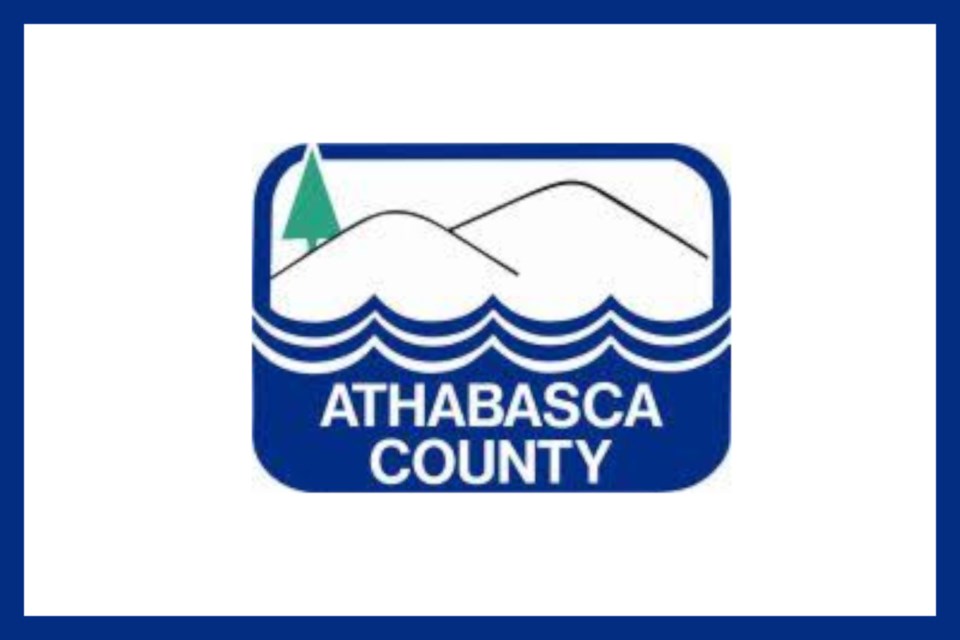Editor’s note: The print version of this story contained an editing error that made a statement by reeve Brian Hall appear in the opposite context of which it was meant. The sentence has been removed entirely for clarity. We apologize for the error. -cZ
ATHABASCA – Ratepayers in Athabasca County will have to wait a little bit longer to learn exactly how much they’ll be paying in taxes for 2022.
Operating and capital budgets are set, but with three councillors holding their ground on approving any of the three previous options for tax rate bylaw, administration will bring back one more option to the May 10 regular meeting, as the deadline to submit the county’s financials to Municipal Affairs for the year draws precariously close.
The 2022 Tax Rate Bylaw was on the agenda for discussion once again for Athabasca County’s April 27 regular meeting, but it was clear there would be no approval of the document coming that day, but instead, a roundtable discussion.
With an assessment roll of more than $2.2 billion, the 2022 budget estimates expenses to add up to $36,175,648, with revenue of $17,658,069 coming from sources other than taxation. That leaves $21,820,047 to be collected in taxes, with another $626,000 coming as a result of the proposed minimum tax. That is certain, but how that will be broken down between property types is the question.
Reeve Brian Hall prefaced the discussion with his thoughts.
“I don’t think we’re here to make easy decisions, I think we’re here to make the right decisions for the county and we shouldn't be making decisions based on what our neighbours are doing but what is right for our municipality, our circumstances, our future. Now, of course we need to be competitive regarding our tax rate, but we also need to draw in sufficient revenue,” he said.
“We can’t indefinitely do more with less,” Hall said. “Fundamentally, I think it's critical that all taxable properties, every last one of them, at some level, make a positive contribution to the operations and financial well-being of the municipality.”
Coun. Joe Gerlach, Coun. Tracy Holland, and Coun. Gary Cromwell remained opposed, citing the proposed addition of the minimum tax for all land parcels, a sharp increase in agricultural land rates, and a lack of a complete financial picture to make an informed decision.
Coun. Rob Minns said he was OK with a $150 minimum tax but didn’t like that 75 per cent of the shortfall to balance the operating budget would come from increases to agricultural parcels.
Coun. Camille Wallach noted there is little going into reserve funds this year and the need to increase staffing and services to some extent is a pressure they face,
“We have to come up with some money somewhere,” she said.
Coun. Kelly Chamzuk agreed, saying she could live with the $150 minimum tax as well.
A motion to direct administration to prepare a tax rate bylaw with a minimum tax of $150, with the remaining budget revenue requirements to be distributed by 50 per cent farmland, 25 per cent residential, and 25 per cent non-residential. An amendment for the inclusion of a sliding minimum scale of $50, $100 and $150 passed 8-1. A 6-3 vote approved that direction to administration.
Gerlach went on to recommend looking at recreational properties as opposed to agricultural lands for more of a contribution saying, “Our taxes aren’t out of place; I think where the problem is, is that we had a tax holiday for three or four years … where there were not any tax increases, and we fell behind. And I think we should look at options to deal with non-agricultural properties that are for recreation services, and those should be taxed at a much higher rate because people are not trying to produce anything.”
Coun. Ashtin Anderson agreed in part, but also noted the minimum tax which Gerlach opposed would also cover administration costs in preparing the tax notices.
Coun. Tracy Holland said she wants more information on actual financial numbers before she agrees to any proposed tax rate bylaw.
“We need to consider that we really haven't got the proper information to consider and that would be what is in our reserves? What is our year-to-date financial? We haven't seen those numbers,” she said, adding she doesn’t understand the rush to make such a massive change. “We don't have any solid numbers. We don't have any proper information. I just can't agree with any one of these items. I think it's backwards that we haven't sat down and discussed what our actuals are.”
Gerlach then moved a motion to direct administration to prepare a tax rate bylaw with a scenario to include a zero per cent minimum tax and distribute the remainder equitably across all property classes, and further to include a minimum tax of $50, $100, and $150. The motion carried.



